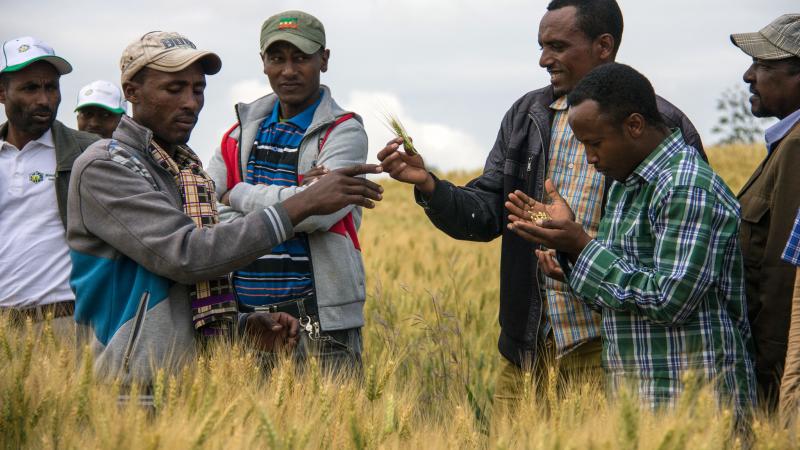A new strategic direction for ICARDA

A new strategy is harnessing cutting-edge scientific research to address the challenges that smallholder farmers face in the dry areas. Demand-driven and building on 40 years of experience the strategy offers practical solutions designed to enhance food and nutritional security, halt or reverse resource degradation, and strengthen resilience and climate change adaptation.
The new strategy emerged after an extensive consultation process with key stakeholders and partners – including national agricultural research systems (NARS), CGIAR Centers and donors – and a careful assessment of their needs and priorities.
It is aligned with the national development priorities of the countries we work in, the wider Sustainable Development Goals (SDGs) Agenda for 2030, and the Strategic Results Framework 2016-2030 of the CGIAR system. It aims to spur innovation, transform agricultural production, and create thriving and resilient communities across the dry areas of the developing world.
Last year was the strategy’s first year of operation as the Center began to align its research activities to five strategic priorities and four cross-cutting research themes.
ICARDA’s strategic priorities
Genetic resources: mining genes and adding novel diversity to develop superior germplasm that can withstand future climate- and market-related challenges, including traits of heat, drought, cold, and salinity tolerance, disease resistance, nutritional attributes, and water efficiency.
Adapting to climate change: using conventional and molecular breeding to develop climate-smart crops and livestock for greater food and nutritional security, and stronger resistance to pests and changing climates.
Building resilience: promoting integrated crop-livestock farming systems through the optimization of economic, social, and environmental conditions in resource-poor areas. We optimize plant biomass for restoring soil health and livestock feed.
Promoting value chains and policies: developing sustainable value chains, viable policies and off-farm activities to diversify incomes. We believe that agriculture can be an income-generating business for smallholder households and we will expand our work to create employment opportunities for women and young people.
Enhancing water and land productivity: supporting the sustainable use of water and land resources through rain-fed, irrigated and agro-pastoral farming. We focus on ecosystems and landscapes that offer opportunities to reverse environmental degradation, enhance intensification and support livelihoods.
ICARDA’s strategic priorities are supplemented by four cross-cutting research themes
Scaling up proven technologies: promoting proven technologies, investing in partnerships and seeking more engagement with agricultural research institutes, non-traditional partners, the private sector, NGOs, development agencies, financial institutions and key agents to put knowledge into action.
Empowering women and youth: improving women’s access to land, water, seeds, financial credit, and knowledge; and encouraging disfranchised youth to consider a future in agriculture.
Building capacity: strengthening research capacity to develop an empowered cadre of researchers and thriving institutions in the dry areas; applying research in the field and engaging closely with smallholder farmers; making scientific expertise accessible; and providing research funding opportunities.
Big data and ICT: using geo-informatics, remote sensing and genomics to enhance research efficiencies and policy communications.
Have a look at our Strategic Plan 2017 – 2026. You can also look at the summary of our strategic plan and highlights.
